Covering more than 180 square miles, Gatun Lake sits at the heart of the Panama Canal and is best known for its powerful mix of peacock bass, tarpon, snook, and jungle jacks. Peacock bass are the main draw, smashing topwater lures and flies around flooded timber and shorelines, while tarpon and snook move through the canal system and stage near current, structure, and the locks. Jungle jacks add nonstop action, hitting both lures and flies aggressively, which makes Gatun Lake an excellent destination for fly fishing as well as light tackle. It’s one of the few places in Panama where you can realistically target all four species in a single day on the water.
The Best Places to Go Fishing in Panama

Panama’s very name comes from an indigenous word for “abundance of fish,” a description that still rings true today. Sitting at the crossroads of two oceans and two continents, the country is blessed with world‑class sportfishing, vibrant local fisheries, and some of the toughest conservation rules in the Americas. For anglers and travelers alike, Panama offers everything from 1‑hour city trips in the Panama Canal to multi‑day expeditions to remote islands where world records are broken regularly. So if you’re planning to go fishing in Panama, this guide is for you.
Why trust this guide?
As avid fishermen and tour organizers based in Panama, we combine first‑hand experience with data from the International Game Fish Association (IGFA), government tourism reports, and the latest research on sustainable fishing. Panama holds IGFA records for more than 30 different species, including 19 all‑tackle world records and even a hybrid Trevally named after the visiting angler who discovered it. Our goal is to provide practical, trustworthy advice for both seasoned anglers and first-timers and to highlight how you can book trips legally and responsibly through PescaYa, Panama’s home-grown fishing-tour marketplace.
Why Panama is a World‑Class Fishing Destination
Panama is the only country in the world where you can fish the Pacific and Atlantic oceans on the same day. Two ocean currents – a cold current from Antarctica and a warm current from the south – converge off the Pacific coast. This collision fuels plankton blooms, attracts bait fish, and creates ideal conditions for big game species like marlin, tuna, and sailfish.
The country’s geography also offers every type of fishing environment: deep‑sea blue water, rocky reefs, mangrove estuaries, and freshwater lakes. Piñas Bay in Darién province alone holds over 300 deep‑sea world records, the most of any location on Earth. Gatun Lake, an artificial lake within the Panama Canal, covers more than 180 square miles and hosts a mix of freshwater and ocean-going species such as peacock bass, tarpon, and even small sharks.
The Best Places to Fish in Panama
Panama’s waters can be divided into four broad zones: the accessible Panama Bay and Pearl Islands near the capital, the remote Isla Coiba national park, a series of Pacific hotspots along the Gulf of Chiriquí and Azuero coast, and the Freshwater & Caribbean areas that include Gatun Lake, Bayano, Piñas Bay, and Bocas del Toro. This section outlines what to expect in each region and which species to target. When you’re ready to book, PescaYa makes it easy to compare charters and secure a spot with trusted captains.
Panama City Bay
If you’re looking for a quick trip while in Panama, fishing in Panama City Bay is just minutes from downtown Panama City. It’s one of the most reliable and versatile fishing spots in Panama. Strong tides and nutrient-rich Pacific currents keep the bay loaded with life, making it especially productive for bottom fishing. Anglers regularly target red snapper, corvina, snook, and hard-fighting jacks on reefs, structure, and drop-offs throughout the bay. Panama Bay is also good for trolling spanish mackerel, jacks, and sailfish a bit further out.
Key species & seasons
- Corvina & Snook: Year-round, with fish often topping 30 lbs.
- Sailfish: Dec–Apr offshore.
- Dorado (Mahi): Dec–Apr.
- Red Snapper: Year-round inshore.
Local tip: Very close to the city, and you can mix your charters with fishing and beach time.
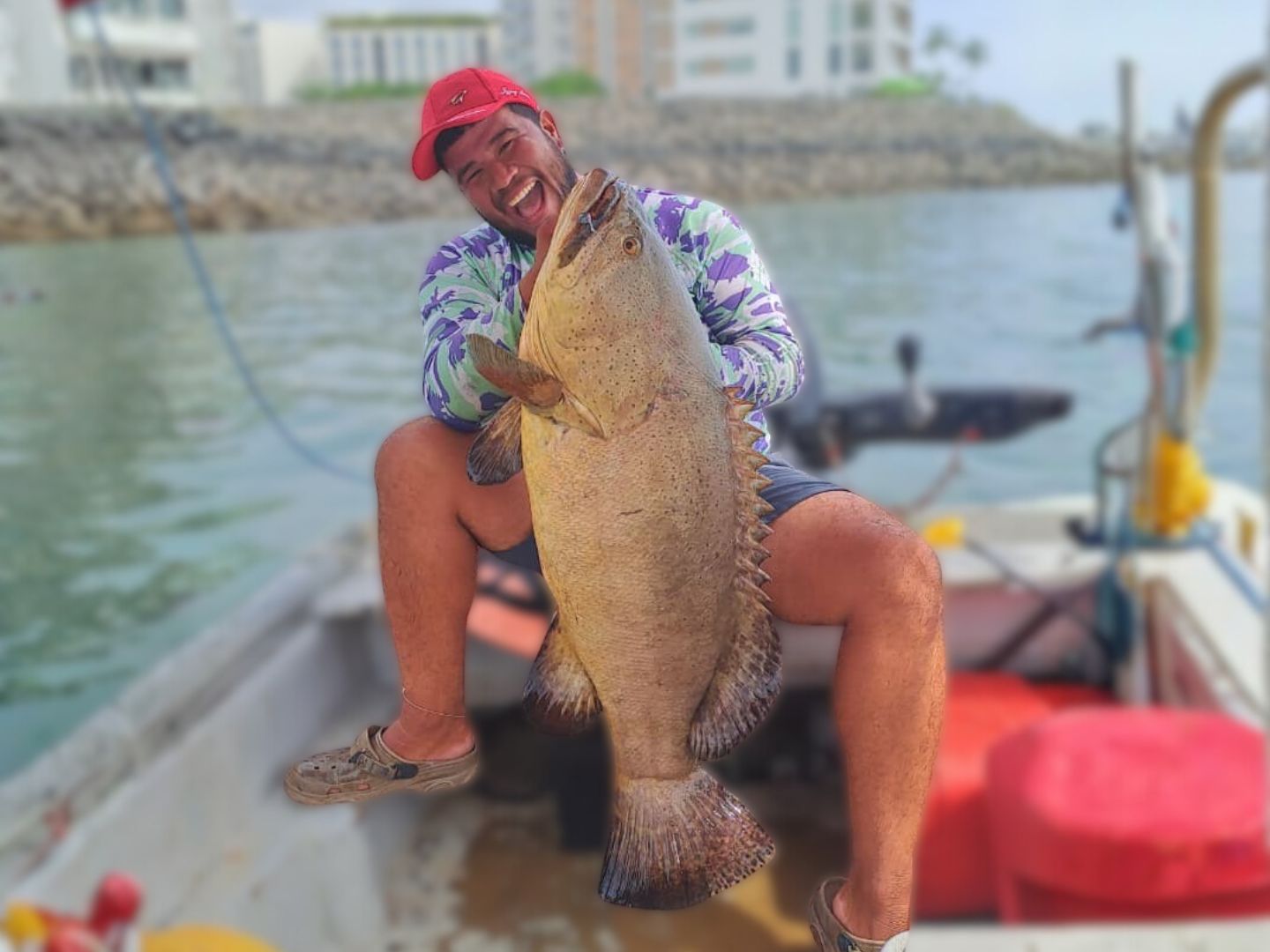
 23 ft
23 ft Up To 4 People
Trips from
See Availability$280
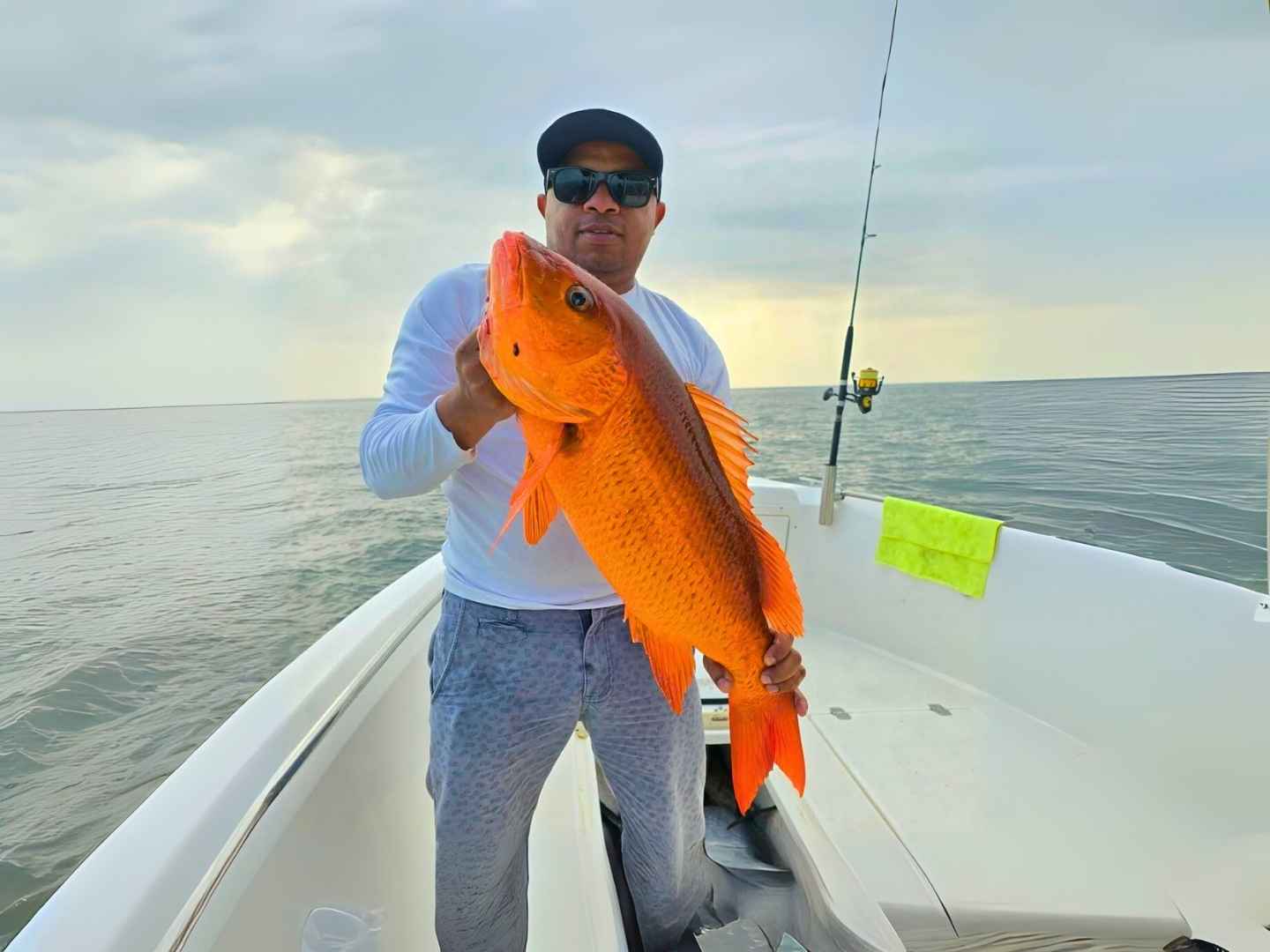
 26 ft
26 ft Up To 6 People
Trips from
See Availability$750
Lake Gatun (Panama Canal)
Key species & seasons
- Peacock Bass: Dec–Apr best clarity; trophies reach 10 lbs.
- Tarpon & Snook: Year-round migrants.
- Jack Crevalle: More active in the wet season.
Local insight: Lake Gatun is peacock bass heaven and an excellent spot for conventional or fly fishing.
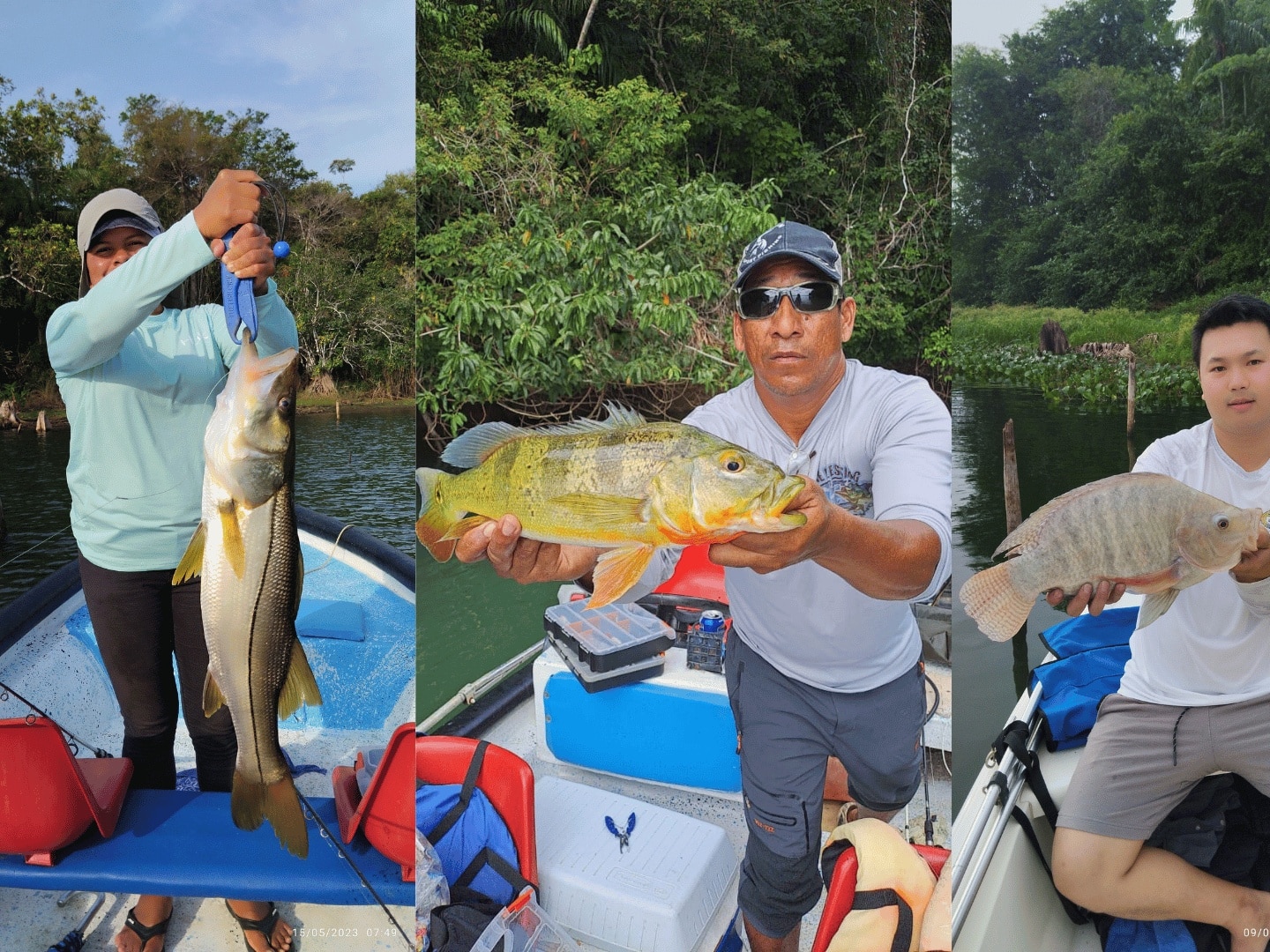
 18 ft
18 ft Up To 3 People
Trips from
See Availability$250
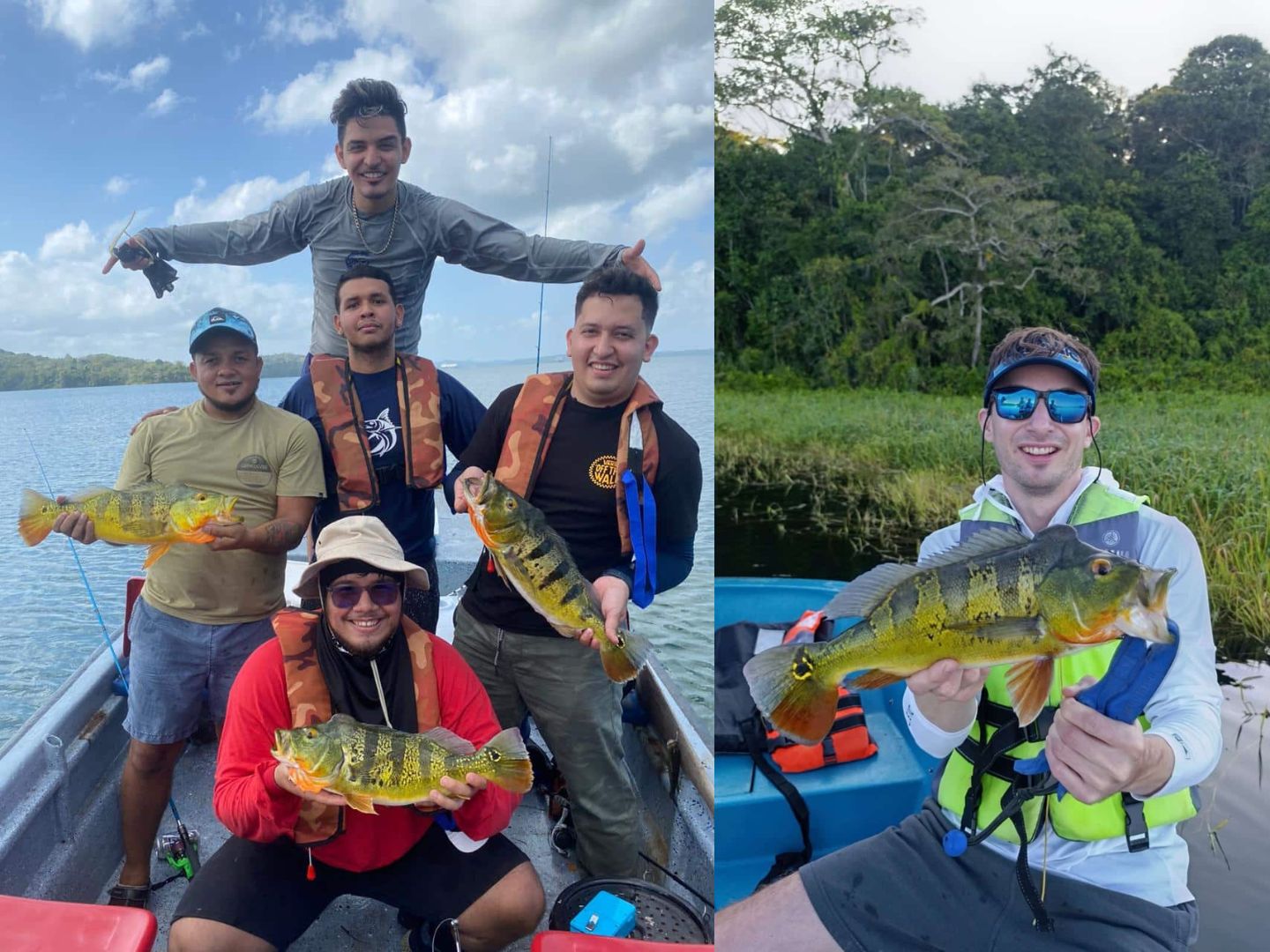
 20 ft
20 ft Up To 4 People
Trips from
See Availability$130
Located about 30–60 miles offshore in the Pacific, the Pearl Islands are one of Panama’s top bluewater fishing destinations, known for consistent action and serious variety. These islands sit along major current lines and bait corridors, making them prime territory for yellowfin tuna, dorado, wahoo, and sailfish, with marlin showing up during peak seasons. Inshore and around the islands themselves, anglers also target cubera snapper, amberjack, roosterfish, and jacks on poppers and jigs. For anyone researching the best fishing places in Panama, the Pearl Islands stand out for their mix of offshore power and island-style action in clear, open water.
Key species & seasons
- Yellowfin Tuna: June–Nov; giants near Isla Contadora & Pacheca.
- Sailfish & Marlin: Dec–Apr offshore.
- Dorado: Dec–Apr.
- Roosterfish & Snappers: Year-round; peak Dec–Apr.
Local tip: Pearl Islands is considered one of the best fishing spots near Panama City.
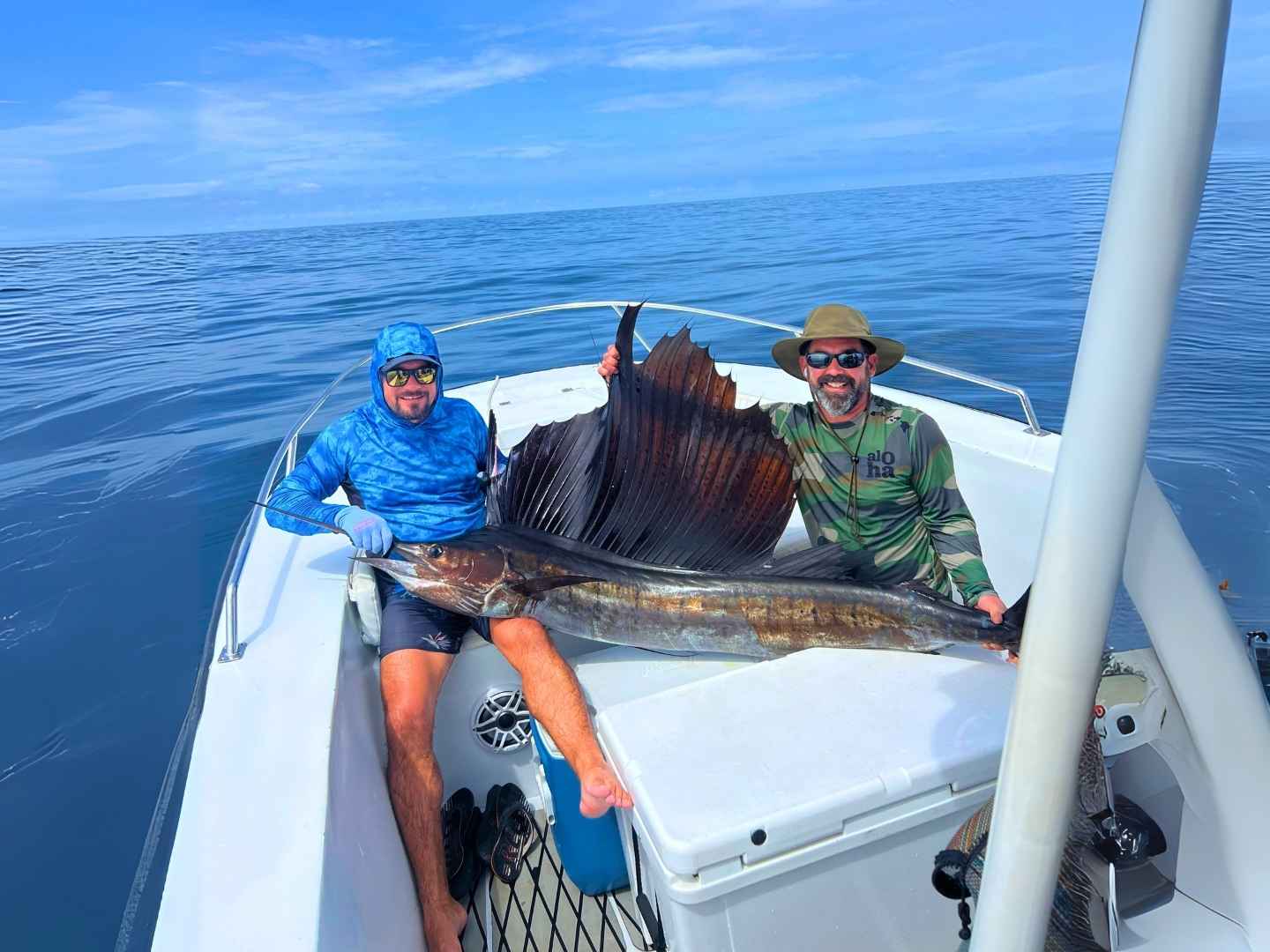
 26 ft
26 ft Up To 6 People
Trips from
See Availability$700

 26 ft
26 ft Up To 6 People
Trips from
See Availability$750
The Bayano River estuary is one of Panama’s most underrated fisheries and a true fly-fishing hotspot, where freshwater and saltwater blend to create perfect conditions for snook, tarpon, machaca, and red snapper. Snook are the main draw, cruising mangrove edges, fallen trees, and current seams, while tarpon roll through deeper channels and at the river mouth. Upstream, machaca deliver fast, visual action on flies, and closer to the estuary entrance, red snapper hold around structure and drop-offs. For anglers chasing technical casts, sight-fishing opportunities, and wild jungle scenery, Bayano stands out as one of the best fly-fishing spots in Panama.
Key species & seasons
- Croaker & Machaca: Strong Dec–Apr (dry season).
- Tarpon & Snook: Year-round, with best runs mid-summer.
Local tip: Bayano is one of the best places near Panama City for fly fishing tarpon.
.png)
 32 ft
32 ft Up To 3 People
Trips from
See Availability$250
%20(1).png)
 24 ft
24 ft Up To 2 People
Trips from
See Availability$200
The Gulf of Chiriquí is one of Panama’s most diverse and productive fishing regions, packed with islands, reefs, and deep drop-offs that hold fish year-round. Popular areas like Coiba Island, Montuosa Island, the Ladrones Islands, and Islas Paridas are well known for consistent action on yellowfin tuna, dorado, wahoo, and sailfish, with marlin showing up offshore during peak seasons. Closer to the islands and rocky structure, anglers target cubera snapper, roosterfish, amberjack, and jacks on poppers, jigs, and live bait.
Key species & seasons
- Yellowfin Tuna: Feb–Sep, peaking Apr–Jun.
- Blue & Black Marlin: Dec–May.
- Sailfish & Dorado: Dec–May.
- Roosterfish & Snapper: Year-round.
Local tip: If you’re looking to land a massive tuna offshore, the Gulf of Chiriqui is the place to do it.
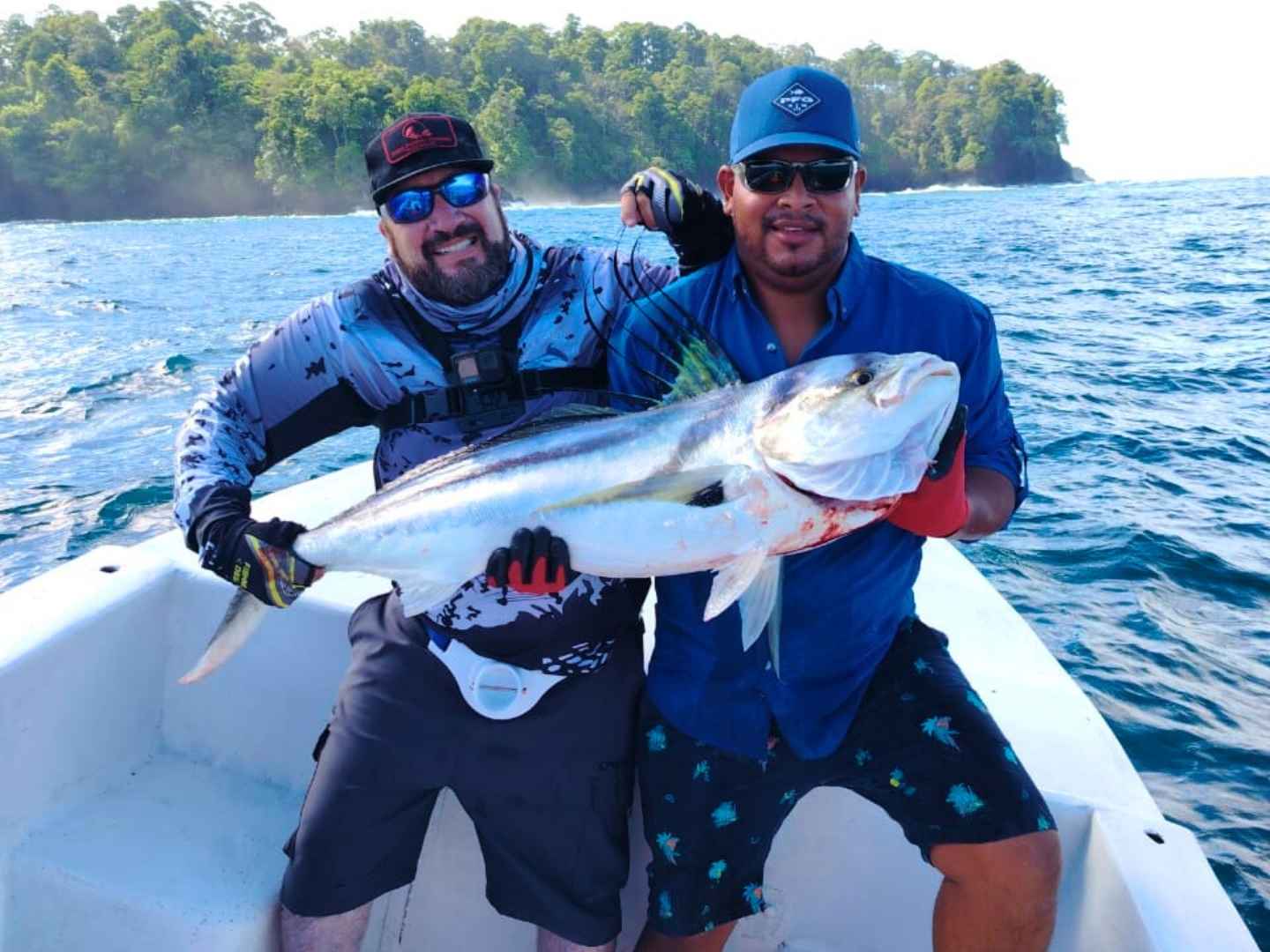
 30 ft
30 ft Up To 6 People
Trips from
See Availability$290
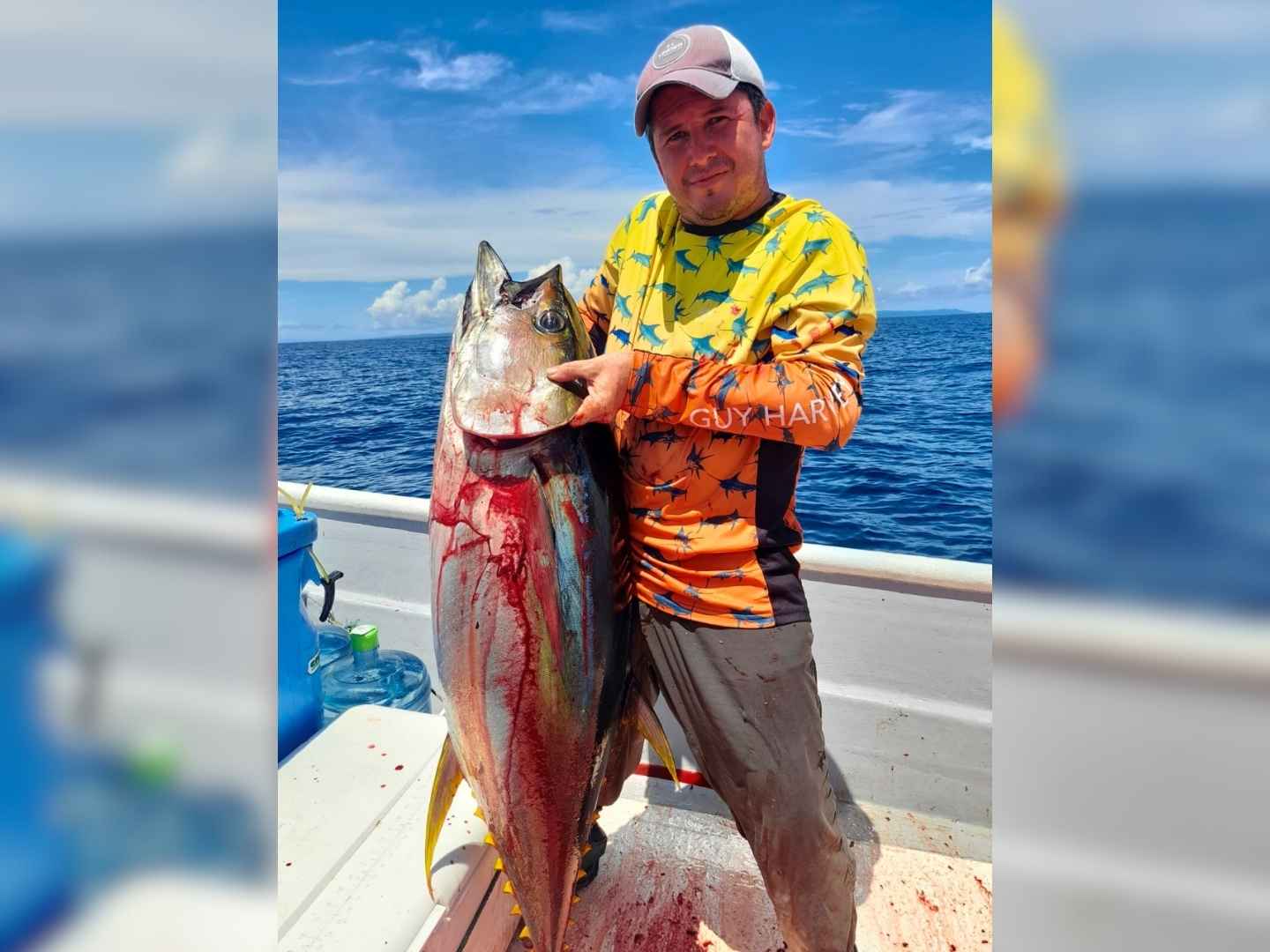
 33 ft
33 ft Up To 4 People
Trips from
See Availability$440
Cambutal, on Panama’s southern Azuero Peninsula, is a raw and lesser-known fishing destination that delivers big rewards for anglers willing to explore. This stretch of coast is exposed to open-ocean currents and rocky structure, creating ideal conditions for roosterfish, cubera snapper, amberjack, and hard-charging jacks close to shore. Just offshore, anglers also run into dorado, yellowfin tuna, and the occasional sailfish without long boat runs.
Key species & seasons
- Marlin & Sailfish: Dec–May offshore.
- Tuna: Mar–Jul nearshore runs.
- Roosterfish & Cubera: Year-round along rocky points.
Local tip: Cambutal is known for great fishing all year round. Great for jigging, popping, and live bait.
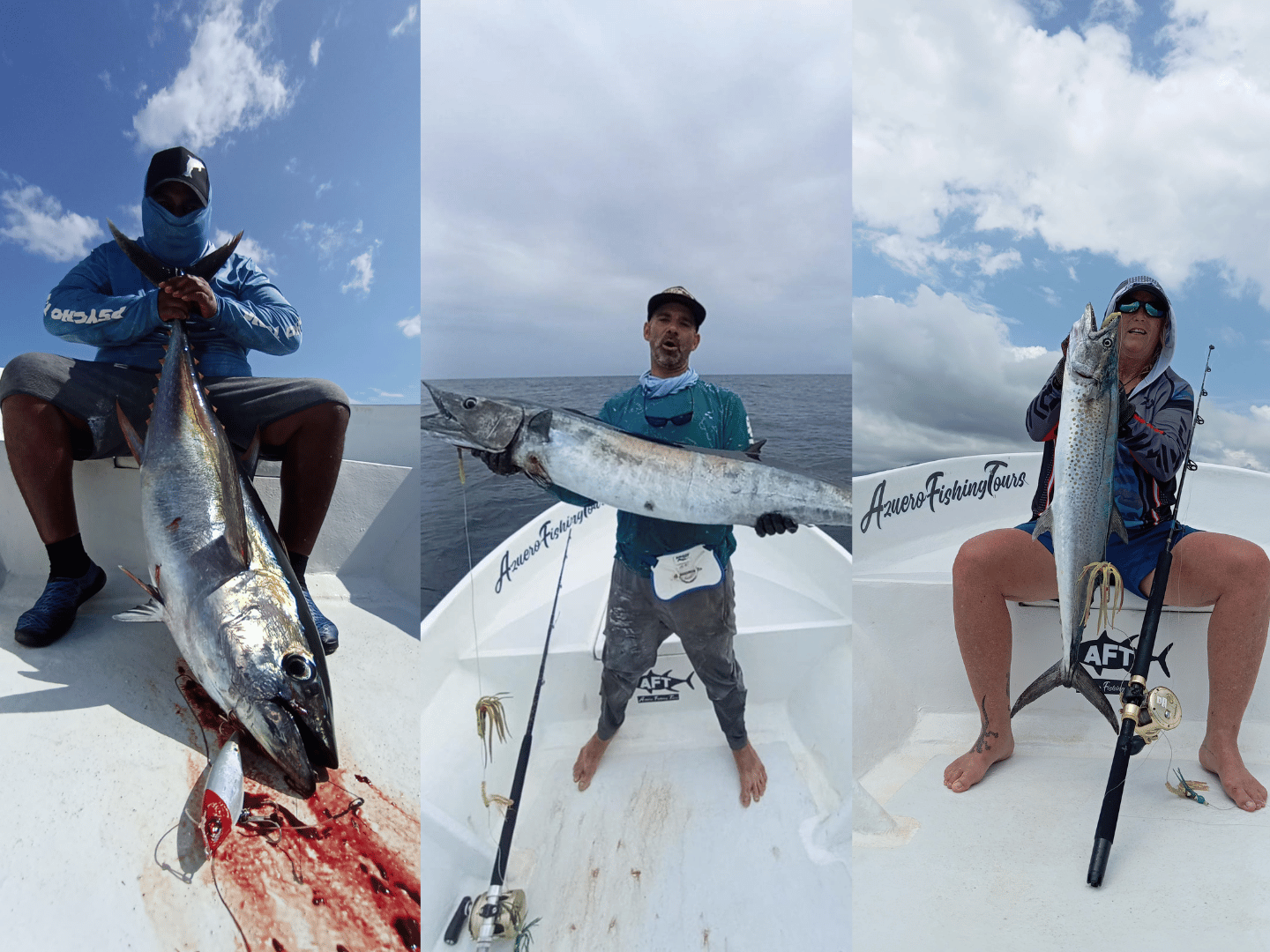
 26 ft
26 ft Up To 4 People
Trips from
See Availability$370
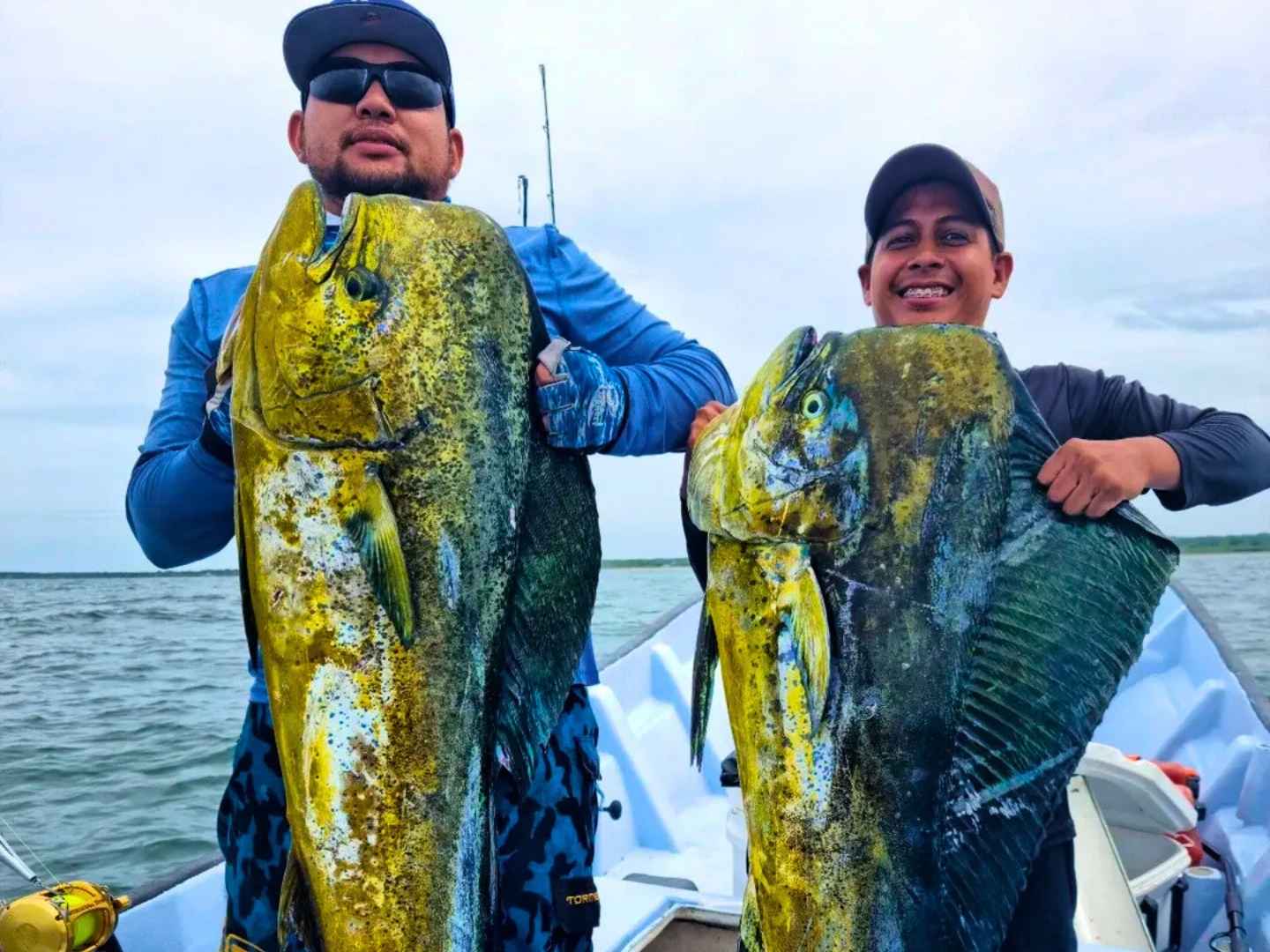
 26 ft
26 ft Up To 4 People
Trips from
See Availability$180
Pedasí is one of Panama’s most well-rounded fishing destinations, known for its easy access to both inshore and offshore action. Just minutes from the marina, anglers fish rocky points and reefs for roosterfish, cubera snapper, amberjack, and jacks, while short runs offshore put you on dorado, yellowfin tuna, sailfish, and marlin during the right seasons. The area around Isla Iguana is especially popular for clear water and consistent bites, making it a favorite for both spin and fly fishing, particularly when targeting roosterfish and jacks along the island edges. For anglers looking to fish multiple styles in a single trip, Pedasí consistently ranks among the best fishing spots in Panama.
Key species & seasons
- Yellowfin Tuna: Feb–Sep, with fish 200+ lbs standard.
- Sailfish & Marlin: Dec–May.
- Dorado: Dec–May.
- Roosterfish & Snappers: Year-round.
Local tip: Located on the Tuna Coast and it’s one of the best places to fish pelagics during winter time.
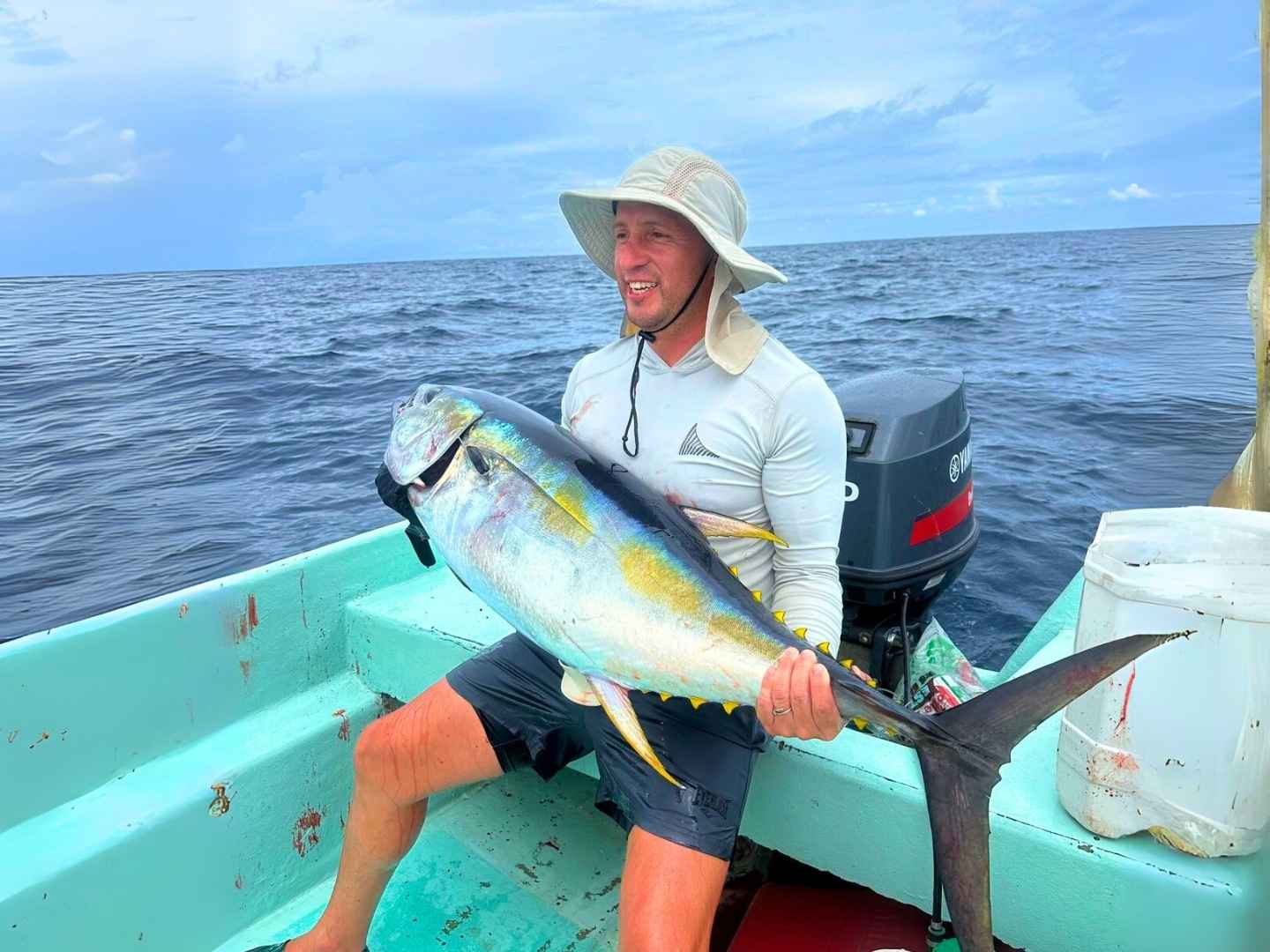
 24 ft
24 ft Up To 4 People
Trips from
See Availability$290
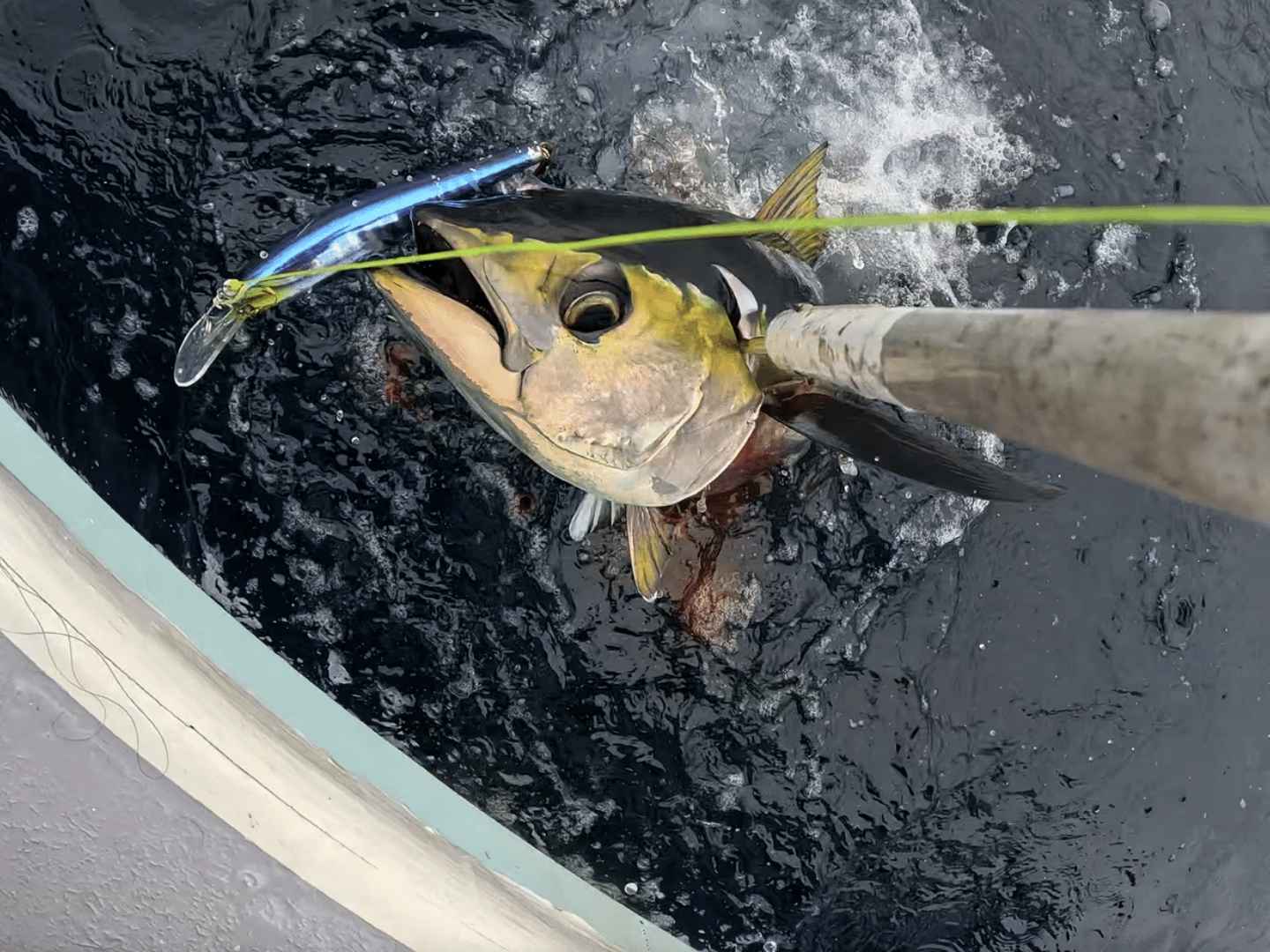
 25 ft
25 ft Up To 4 People
Trips from
See Availability$175
Palo Seco, Veraguas, is a wild and lesser-fished stretch of Panama’s Pacific coast, known for deep water close to shore and strong currents that keep fish moving through the area year-round. Popular fishing zones around Palo Seco include the rocky coastline and river mouths within the Palo Seco Forest Reserve, as well as nearby areas toward Cebaco Island, Mariato and Punta Caña, where structure and current lines concentrate bait. Anglers target roosterfish, cubera snapper, amberjack, and jacks inshore, while short runs offshore can produce dorado, yellowfin tuna, and sailfish. With minimal boat traffic and untouched scenery, Palo Seco in Veraguas is a solid choice for anglers looking for aggressive fish and uncrowded waters.
Key species & seasons
- Yellowfin Tuna & Marlin: Offshore Dec–May.
- Dorado & Sailfish: Dry season peak.
- Inshore Roosters & Cubera: Consistent year-round.
Local tip: Less traffic than big-name hubs means calmer waters and more untouched reefs — perfect for jigging.
.png)
 28 ft
28 ft Up To 5 People
Trips from
See Availability$249
.jpg)
 26 ft
26 ft Up To 4 People
Trips from
See Availability$850
What Can You Catch in Panama?
Below is a quick reference to the most popular game fish in Panama, their sizes, and prime seasons. Remember that many species, such as roosterfish, snappers, and groupers, are available year‑round.
| Fish Species | Typical Size & Notes | Best Season (general) | Primary Regions |
|---|---|---|---|
| Blue & Black Marlin | Among the largest billfish; Panama records exceed 1,000 lbs. Light‑tackle records (6‑16 lb line) were set here. | December–May (Pacific), May–August for light‑tackle marlin. | Hannibal Bank, Isla Coiba, Cambutal, Palo Seco, Pedasí |
| Sailfish | Known for spectacular jumps; strictly catch‑and‑release by law. | December–May | Gulf of Chiriquí, Isla Coiba, Pedasí |
| Yellowfin Tuna | 40–200+ lbs; schooling fish that migrate along Pacific islands. | Feb–Aug, peaking April–June; slows by August. | Hannibal Bank, Pearl Islands, Cambutal, Palo Seco |
| Roosterfish | Strong inshore predator with comb‑like dorsal fin; up to 80+ lbs. Can be targeted from shore or boat. | Year‑round; most active mid‑winter and mid‑summer when seas are calm. | Pacific coast from Pearl Islands to Cambutal |
| Cubera Snapper | Aggressive reef fish; commonly 20–80 lbs. | Year‑round; best during dry season when water is clear. | Coiba, Gulf of Chiriquí, Palo Seco |
| Peacock Bass (Tucunaré) | Introduced cichlid; common at 4 lbs, trophies up to 10 lbs. | Dry season (Dec–Apr). | Gatun Lake, Bayano Lake |
| Tarpon | “Silver king” up to 150+ lbs; found in both Caribbean and freshwater systems. | Year‑round, slightly better mid‑summer. | Bocas del Toro, Río Bayano, Lago Gatún |
| Snook & Corvina | Coastal favorites; 5–30 lbs; great eating. | Best during dry season (Dec–Apr). | Panama Bay, Pedasí, Palo Seco, Bayano |
| Wahoo | Fast predator; 20–60 lbs; peaks in late spring. | Abril–junio. | Offshore reefs near Coiba, Hannibal Bank |
When Is the Best Time to Fish in Panama?
Panama offers year‑round fishing, but the optimal months depend on the species you’re targeting. Use the calendar below as a guideline.
| Month | Best Targets | Notes |
|---|---|---|
| Jan–Feb | Sailfish, marlin, dorado, roosterfish, snappers, peacock bass | Dry season on the Pacific; calm seas and clear water; great for inshore and offshore trips. Yellowfin tuna action begins to pick up in February. |
| Mar–May | Marlin, sailfish, dorado, yellowfin tuna, wahoo, roosterfish | Peak offshore season; Hannibal Bank and Coiba are bustling with billfish. Wahoo runs in late spring. |
| Jun–Aug | Yellowfin tuna, roosterfish, cubera snapper, tarpon, snook | Tuna migration peaks April–June and slows by August. Mid‑summer provides calm seas for roosterfish. |
| Sep–Nov | Roosterfish, snappers, grouper, tarpon, machaca | Wet season brings higher water levels, improving freshwater fishing in Gatun and Bayano; fewer offshore boats mean less pressure. |
| Dec | Blue and black marlin, sailfish, dorado, roosterfish | Transition back to dry season; excellent mixed‑bag fishing near Cambutal, Pedasí and Panama Bay. |
How to Fish: Methods & Tips
Deep-Sea Trolling
The default for marlin, sailfish, tuna, dorado. Spread lures, rigged baits, and teasers; bump up sizes when specifically hunting blue/black marlin. Many charters run 30–80 lb stand-up or chair gear.
Live-Bait & Jigging
Deadly for snappers, groupers, amberjack, snook. Slow-pitch and speed jigs both have a place. Around seamounts and reefs, be ready for sudden freight-train strikes.
Spinning & Popping
Few things beat a tuna explosion on a surface popper or a rooster charging a stickbait. Use stout leaders, especially near rocks where abrasion will punish mistakes.
Fly Fishing
Salt or fresh, Panama has genuine fly targets: tarpon, snook, jacks in the Caribbean and canal systems; peacock bass and machaca in lakes and rivers; even sailfish and snappers on blue-water fly with the right crew.
Kayak & Shore
Protected bays (Bocas, Azuero coves, Boca Chica) are great for kayak missions. Shore casters score snook, roosters, snappers, blue runners—especially in the dry season when visibility improves.
Freshwater Tactics
For peacock bass, work shorelines with small crankbaits, spinnerbaits, and streamers. Machaca crushes topwater; think light tackle and explosive takes.
Regulations & Sustainability
- Licensing: Visitors do not need a personal recreational license; charter boats must be permitted and carry proper documentation.
- Protected species: Billfish (marlin/sailfish) are catch-and-release by law. Sea turtles are fully protected.
- Seasons & gear: Shrimp/lobster seasons are regulated; parks like Coiba require angling permits and have species/harvest rules.
- Best practices: Circle hooks, quick releases, minimal handling, and keep-what-you-eat ethics. Ask your captain about release protocols before you book.
Economic Impact & Tourist Insights
Sport‑fishing tourism supports thousands of jobs. A Billfish Foundation report found that in 2011 roughly 86,250 visitors fished in Panama, spending US $97 million; this generated US $170.4 million in total sales and supported more than 9,500 jobs. The number of anglers doubled between 2001 and 2011, 87% were satisfied with their trips, and 68.5 % chose Panama based on recommendations. Responsible tourism and positive word‑of‑mouth remain crucial drivers of Panama’s fishing economy.
Is Panama fishing sustainable?
Panama has some of the strictest fishing regulations in Central America. Hunting any species of marlin or sailfish is illegal; these billfish must be released immediately. Long‑line vessels over six tons are banned. Individual anglers do not need a personal fishing license, but all charter boats must carry permits and up‑to‑date documentation. Protected species such as turtles are strictly off‑limits, and seasons for shrimp (Feb–Apr and Sept–Oct) and lobster (Mar–Jul) help protect breeding cycles. These measures have helped Panama maintain vibrant fish populations despite growing tourism.
Price Snapshot by Region (Typical Ranges)
| Region / Hub | Typical Targets | Trip Type | Typical Range (USD) |
|---|---|---|---|
| Panama Bay & Pearl Islands | Rooster, snapper, dorado, seasonal tuna/sails | Half/Full-day | 600–1,200 |
| Gulf of Chiriquí (Hannibal/ Montuosa) | Yellowfin, marlin, sails, wahoo | Full-day / Multi-day | 700–1,500 (day); 1,800–4,000+ (packages) |
| Azuero (Pedasí, Cambutal) | Tuna, rooster, cubera, marlin/sails (seasonal) | Half/Full-day | 300–1,000 |
| Isla Coiba | Marlin, sails, tuna, roosters, big reef fish | Day / Multi-day (permit req.) | 350–1,500+ |
| Gatun Lake / Canal | Peacock bass, snook, tarpon | Half-day / Full-day | 200–400 |
| Bayano River & Reservoir | Snook, tarpon, machaca | Full-day | 200–400 |
| Bocas del Toro | Tarpon, snook, reef mix | Half/Full-day | 200–600 |
| Piñas Bay (Darien) | Marlin, sailfish, tuna, wahoo (lodge) | Multi-day packages | más de 3,500 |
Frequently Asked Questions
What is the best fishing destination in Panama?
It depends on what you want to catch. For big game like marlin and tuna, Hannibal Bank, Isla Coiba and the Tuna Coast are top choices. For a variety closer to town, try the Pearl Islands or the Pacific Hotspots, and for freshwater, head to Gatun Lake or the Bayano River.
When is the best time of year to fish in Panama?
The dry season (December–May) offers the best marlin, sailfish and dorado action. Yellowfin tuna peak from April–June, and inshore species such as roosterfish, snappers and snook bite well all year.
What gear should I bring?
For offshore trolling, 30–80 lb rods with high‑speed reels and skirted lures cover marlin, sailfish and tuna. Inshore, 20–50 lb spinning outfits with jigs, poppers and live‑bait rigs work for roosterfish and snapper. Freshwater anglers use lighter 10–20 lb tackle with small crankbaits and flies.
Do I need a permit or fishing license?
No personal license is required, but charter boats must have permits. National parks require special permits, which reputable operators will arrange.
Why Book with PescaYa?
PescaYa is Panama’s home‑grown platform connecting anglers with fully vetted captains and charter operators. We offer:
- Verified Captains & Boats: Every boat is inspected and captains’ permits are checked to ensure compliance with Panamanian regulations.
- Transparent Pricing: See all costs up front—no hidden fees or brokerage commissions.
- Flexible Options: From half‑day bay trips to multi‑day offshore expeditions, we have tours for every budget and skill level.
- Support & Local Knowledge: Our bilingual team is based in Panama and ready to answer questions about seasons, gear or logistics.
- Sustainable Practices: We partner only with operators who practice catch‑and‑release for billfish and follow best conservation protocols.
Whether you’re a seasoned angler chasing marlin records or a first‑time visitor looking for a fun family adventure, Panama has a fishing experience for you. Book your adventure through PescaYa today and join us on the waters that gave our country its name!
Featured Posts
Panama Fishing Tours – Ultimate Guide 2026
Nov 24, 2025 ·
28 min read
Snook Fishing in Panama: The Ultimate Guide
Nov 22, 2025 ·
13 min read
Tarpon Fishing in Panama – Best Spots, Seasons & Tips
Nov 10, 2025 ·
12 min read
Peacock Bass Fishing in Panama
Nov 10, 2025 ·
7 min read
Sport Fishing in Panama 2026: Top Destinations, Seasons & Travel Tips
Nov 5, 2025 ·
4 min read
Fishing in Palo Seco: Fish Species and Tours
Nov 5, 2025 ·
1 min read
Would you like to keep reading?

Machaca Fishing in Costa Rica: Complete Guide for Anglers
Lake Arenal stretches before you, the massive Arenal Volcano rising dramatically in the background. Your guide points...
Read More
->
Machaca Fishing Guide: How to Catch Central America’s Mini Tarpon
Machaca Fishing: The Complete Guide to Central America’s Mini Tarpon The surface erupts without warning. A silver...
Read More
->
Gulf of Chiriqui Fishing Explained
Fishing the Gulf of Chiriqui is widely considered the best fishing experience in Panama. This remote Pacific region...
Read More
->